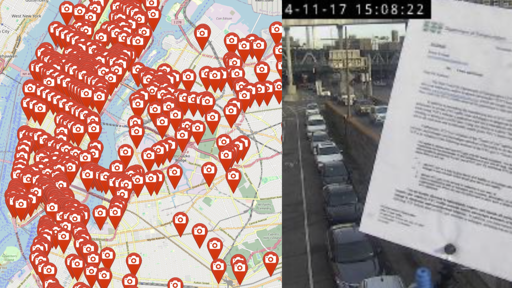I don’t know anything about it, but clicking on “Trending” and scrolling for a little while gave me the Facebook horrors.
- 8 Posts
- 67 Comments

 0·18 hours ago
0·18 hours agoIt depends. Are you looking out for the American people, and aware that your career forever if not your very literal physical survival over the next few years will depend on having people in important roles who are smart and tenacious and have some proven popularity with the people they are representing?
Or, are you a money-corrupted ghoul so addled by campaign contributions and sociopathic consultants that the very idea of someone who’s there for reasons other than fabulous wealth for you and your friends is abhorrent, to the point that you would never let that person anywhere near power, because the mere thought of her and what she knows you to be, inspires in you nothing but nervousness and hatred?
I don’t think “both sides” and I think we need allies in power right now, even if they are the Democrats. But also, if the Democrats were going to do something about Trump, they would have at some point in the last four years. They’re going to keep sleepwalking, most of them, until firing squads come into the capitol looking for them.

 13·2 days ago
13·2 days ago!newcommunities@lemmy.world is a very common one. I’ll put a plug also for !communities@ponder.cat. I also tend to look at the lists of communities from “good” instances and subscribe en masse to a bunch of them all at once if I like the vibe of the instance overall.
You are right that there really isn’t as good a way as there “should” be, maybe, but that’s what people do and it seems to work okay.
 0·2 days ago
0·2 days agoIt is a common task to figure out who should be directly pipelined for the central education pathway and who needs to be isolated from it lest they become pointlessly disruptive to others’ learning, as they have demonstrated that they will interrupt with silly ideas
And all of a sudden, it all snapped into focus.
I’ve been involved in education for almost all my adult life. The number of times I can remember having to do something like this is once, for one person, in all of that time.
Way up at the beginning, I said “In non-authoritarian contexts” certain modes of interaction are common, and you asked, “What on earth are you talking about.” This is what I’m talking about. It’s very strange and inhuman, to me, for the teacher to say that someone’s ideas are silly, and for that reason they need to be removed from the class before they disrupt everyone else’s “learning.” One of the most important parts of teaching is understanding where people are coming from, actually truly coming from, so you can address their current perceptions directly, so they can understand. They might be right or partially right, they might be wrong, or they might be silly. It’s fine. Another critical early stage of the process is to earn their respect, demonstrate that you know what you’re talking about, so that in a genuine sense they’ll want to learn from you. That can be incredibly hard, because there’s not really a system for it. It has to be a human thing. If you can do that, though, everything after is easy. The students are coming to you because their current understanding isn’t there, presumably, and because they want to fix that. If you can show them you’re qualified to improve their understanding, then of course they will listen to you instead of being “silly” as you say it.
If you say something, and they don’t understand it or don’t agree with it, and then you abandon them and say they have to be separated before someone else hears what they have to say, that’s a massive red flag to me. It might be for reasons of time or organization, you don’t necessarily need to hear out completely every beginner idea that every single student has to say. But also… presumably, they’re there because they have some interest in what you’re teaching. Hopefully. If during the course of the interaction, they’re espousing ideas you think are wrong, they’re probably not the only person in the class that thinks that way. Some other people just might not be saying it. If you can address things in a productive way, then you give everyone else in the class the chance to hear out the exchange of ideas. That’s hugely instructive. That’s actual education. Hopefully, your ideas are solid enough and you have the skill to address it in a way where overall it’s pretty clear that your ideas are the “right” ones. To everyone else, if not to the “silly” student, or not to them right away.
I don’t truly know anything at all about your method of teaching. But like I say, this makes it all come clearly to me. You’ve been sort of giving me orders about how I am required to engage with you. You’re trying to “instruct” me, which is a fine thing to do obviously, but you clearly haven’t earned the right to do that, in my eyes. I was confused about why you kept approaching the interaction as if you had, and I needed to “get with the program” and treat you that way, but again, now it makes sense. You’re treating me like one of your students.
Most people work in this way that I’m describing. If you want genuine respect from your students, you need to engage with them as human beings, and not become so aggrieved if they’re not taking part in the process with completely correct ideas already formed, or with “correct” behavior already in place. Most people operate by respect, not by obedience, although certain types of coercion will cause them to obediently fake it. All you’ll do by demanding obedience whether or not the respect is there, though, is produce insincere students, which is a terrible thing. And you’ll also miss the chance to actually educate someone, if their inner ideas don’t match the things you’re trying to teach them.
 0·2 days ago
0·2 days agoMy guy: You raised an issue with how I was participating. I explained why I was doing it, but also offered to correct it, admitting that you kind of had a point. You said you weren’t going to count that as good faith, but that I was “free to try again.”
I don’t know what sort of person you are trying to engage with, but it is some sort of obedient robot or sniveling quisling. I wish you luck in finding that person. They would probably also respond well to being told that it’s not your job to find sources for your statement, but their job to find sources for your statements. I think you will have difficulty in finding such a person but like I said I wish you luck.
 0·2 days ago
0·2 days agoI’m not going to count this as a good faith response
I’ll have to try to find a way to carry on regardless. Best of luck.
 0·2 days ago
0·2 days agoYou have a valid point that I’ve been ignoring things you’ve said or questions you ask. Are there any of the unanswered questions that you want me to take some real time and answer for you? Part of my not “getting with the program” so to speak, it seems, is like I say that I simply don’t believe you based on my little bit of investigations so far, so I’m focusing my attention on seeing if you’re trustworthy before taking anything of the very large and varied number of claims you’re making seriously.
I don’t really consider myself obligated to chase down each and every new thing you bring up in each message, investing hours of time absorbing your sources in detail while you airily discard any of my sources claiming that they are propaganda. But, like I say, it’s not an unreasonable complaint, and if you want to bring up a couple of the unanswered questions now, I’m happy to spend a quick moment addressing them if you want.
 0·2 days ago
0·2 days agoThis is seemingly in response to me repeatedly noting your selective responses, but it doesn’t address it at all.
It absolutely addresses it. It explains why I’m doing it. You just don’t like my explanation.
Edit: PS I’m not reading the rest of what you wrote until you can demonstrate basic good faith.
Okey dokey.
I think you should share this way of looking at security with some security professionals, and see what they say about it.
I know some people who recently wrote an article, for example, which said among some other things:
The simple answer is that you can’t and shouldn’t trust either free or paid VPN providers. … For some, using a VPN can be as dangerous as not using one.
And your government can seek grounds to demand access to your browsing data anytime it wants — including retroactively — which can also include demands to access data from VPN providers, defeating the very point of the privacy you sought.
Security experts consider the Tor network the gold standard of private browsing because it allows you to access the internet without censorship or surveillance.
Instead of relying on a single tunnel to hide your internet traffic, Tor works by encrypting and routing users’ internet traffic through thousands of servers around the world, shielding their activity from other servers and the outside world. Because of Tor’s implementation, no single Tor server can see your browsing data. That means even if a Tor server is compromised, the attacker still cannot access the users’ browsing data within.
Because Tor is open source, anyone can inspect its source code to ensure that it’s safe to run.
And so on.
You’re not wrong that a VPN will shield your non-web traffic, and if you’re doing something sensitive outside of HTTPS and the associated DNS, then Tor won’t help. It also won’t prevent someone from stealing your car or breaking into your house. And, the same very serious vulnerabilities that apply to free or commercial VPN providers will apply to all of that non-web traffic.
The same article with the above useful tidbits of information also includes a guide to setting up your own VPN, which can be made actually extremely secure against some threats, if you do want to secure non-web traffic. Tor is still much better at protecting your web traffic, assuming that you’re doing something for which it is suitable.
Hope this helps. Let me know if you have any questions.
Tor is for oppressive countries where anonymity and misdirection are more important than performance. It’s literally worse than a VPN in every single way unless you’re concerned with a major country coming for your head.
So it’s… … more secure? I generally agree with this statement. The performance is worse, which makes it unsuitable for some things.
VPN is not “a browser”, it’s a network stack. It is separate from whatever you use for a browser. If you use Tor, you still use a browser.
Yes, which makes it kind of silly that you originally highlighted a vulnerability in the browser as a problem with Tor. Tor is also a network stack, but it’s most often used through a bundled-in specific Tor browser, which sometimes has vulnerabilities. Most VPNs don’t bundle a browser, but the browser that’s using the VPN still sometimes has vulnerabilities. They stand in exactly the same relationship, in terms of vulnerabilities in the browser. Neither one is better than the other. That’s the point that I was making. I can absolutely assure you that I understand the technologies involved.
Actually, I should have said specifically: It is true that Tor is slower and unsuitable for some applications, streaming and torrenting being two of them. It was more your statement that it is somehow less secure that I was disagreeing with.
VPN-using browsers
VPN is not “a browser”
Diesel-burning cars
Diesel is not “a car”
See how language works? You need to relax man.
I typed up a long sarcastic response as to why this isn’t true, but I think I’m going to let you keep believing these things. If you think VPN-using browsers do not have vulnerabilities that need updates to fix actively exploited vulnerabilities, or that data is protected between the exit node of a VPN and the end path, then I’m going to let you keep thinking those things. I’ll never stand between a person and their dreams.
You shouldn’t use it for torrenting
True.
it’s frequently targeted by intelligence agencies for IP unmasking
I would take issue with “frequently,” in the grand scheme of things, but yes. It is a sufficient level of protection that state intelligence agencies have to have specific methods, which sometimes work and sometimes don’t, to try to specifically attack one specific actor on Tor if they care enough to do it. In contrast to a VPN, which any bumbling fuckhead in more or less any jurisdiction can generally defeat with a single subpeona, and even a fairly stupid intelligence agency can defeat without blinking.
Tor sucks
Your axioms don’t add up to your theorem. There are cases where a VPN is better, torrenting being one of them, that part is true.
Yeah the whole logic of “If I protect my privacy effectively, I won’t be able to use Google services anymore! O woe” is a little bit strange to me.
 0·3 days ago
0·3 days agoDidn’t you say you were done with this conversation and then said goodbye?
Yeah, but then I got interested again.
I will note again that you ignored nearly everything I said
Really ask yourself what the the basis of these incredibly selective responses is.
I began by simply sharing information, but you started trying to argue combatively about it and treat this like a debate
You are welcome for having been provided with context to help you understand this topic and investigate it critically. As a curious skeptic, surely you appreciate this kind of information and won’t search for a way to whine about my audacity.
Yes. Like I said before, if I have no particular reason to trust you, then I’m not going to accept the information that you give me. I’m not sure why that’s so persistently difficult to understand, or why you keep framing things in terms of you providing information that I am required to accept, and me making things difficult by examining it skeptically first.
What basic facts have I gotten wrong?
- The special treatment of Uyghurs for family planning quotas ended in 2017: https://web.archive.org/web/20170908140929/https://www.globaltimes.cn/content/1058905.shtml (or in section 105 of the report you sent me)
- You claimed the OHCHR made no claim of wide-scale destruction of mosques. You then tried to claim that “wide scale” and “a large number” are two totally different things, and you sort of hinted that if I read the underlying sources, I would find something damning. I spot-checked the underlying sources, and I found confirmation for the idea that mosques are being destroyed at a wide scale, or a large number, or whatever you want to call it.
- You claimed “Though it should be noted that Han have the most restrictive control over reproduction,” when the numbers cited by the OHCHR report indicate about an order of magnitude greater sterilizations among the Uyghurs (section 108).
You don’t have to trust the OHCHR report, of course. Let me ask this: What sources would you trust? What can I refer to that you consider as a trustworthy source of information? That’s why I specifically referred to globaltimes.cn above. But then, I have no idea if you trust them.
It is actually your onus to investigate all of this.
I just got tired of the conversation again.
You seem to be interested in talking about this, to some extent, but I’m not going to respond to general hints about what I might want to look at, or retreats into “do your own research”-type non-answers. If I’m making a claim, it’s my duty to be willing to back it up instead of just sort of hinting.
You have a valid point that I’ve been ignoring things you’ve said or questions you ask. Are there any of the unanswered questions that you want me to take some real time and answer for you? Part of my not “getting with the program” so to speak, it seems, is like I say that I simply don’t believe you based on my little bit of investigations so far, so I’m focusing my attention on seeing if you’re trustworthy before taking anything of the very large and varied number of claims you’re making seriously.
That’s my process: Test some things that people say, before you believe them on the wider narrative.
That’s an irrational process. You need to actually read critically and inform yourself.
In your world, what does “read critically” mean? If testing some of the things from a particular source before you start to take it seriously isn’t that?
I generally trust the OHCHR report, not because I automatically trust everything from the UN, but because it doesn’t have any obvious inconsistencies with its sources and seems to draw on things that broadly match with what’s broadly accepted by human rights NGOs, Wikipedia, news sources with a variety of allegiances, and so on. I went through some version of the process with it that I’m trying to do with you, and it didn’t have sudden changes in its story, factual inconsistencies with other things that were trustworthy, suspect logical patterns, and so on.
Like I say, I think we’re just at an impasse, because you’re absolutely convinced that you’ve already done the critical reading, and I just need to get with that program and accept what you’re saying. I don’t think your reading of sources is as critically minded as you think it is. I think you’ve absorbed, and are trying to relay to me, a particular way of analyzing sources that I’m just fundamentally not on board for.
There’s a very particular failure mode that the human brain can get into when “it’s all propaganda” or “all their sources are biased” or corrupted by money, or whatever, start to become how you analyze sources. It starts to become very easy to just discard anything that doesn’t match the picture that’s already in your mind, and accept anything that matches the picture that’s already in your mind, because you’re defining the trustworthiness of the source in that sort of self-referential way. The way you talk about needing to “contextualize,” and the way you allocate trust to different sources, makes me think you’re unintentionally using that type of maladaptive pattern. Part of the reason I’m spending this length of time talking with you is that you do seem passionate about the truth, willing to invest energy into getting to the bottom of things, and so on. But I really think that you could benefit from some self-reflection about objectively, “Is this statement I am making true? Is this source trusthworthy?” before starting to go HAM with it, or uncritically accept other things from adjacent sources.
Does that make sense? Just my two cents, good luck with everything.
I like how the article boils down to, “Except for some isolated use cases, Tor is far superior to a VPN in both cost and safety,” and a lot of the comments boil down to “YEAH VPNS ARE GREAT GET A VPN.”
It is okay to read the article before writing a comment, guys. In some circles, it’s even encouraged, because you might learn something.
Tor has plans for free/mo.








https://www.vice.com/en/article/russia-sims-3/